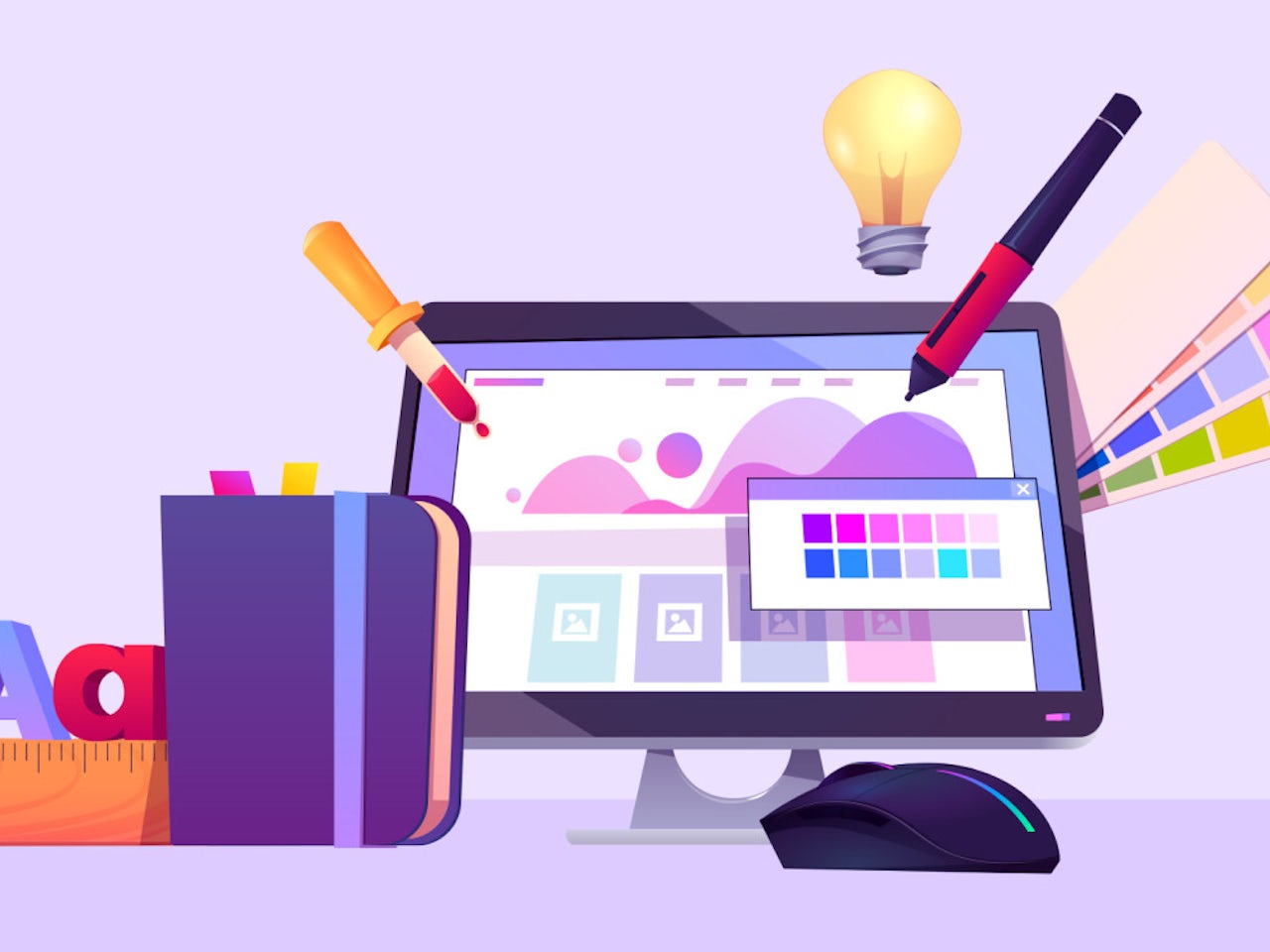The Duty of Responsive Website Design in Today's Mobile Market
The Duty of Responsive Website Design in Today's Mobile Market
Blog Article
Maximize Individual Experience With Innovative Website Layout Solutions
In today's digital landscape, making the most of user experience through ingenious internet site layout remedies is important for services seeking to engage their target market efficiently. By accepting user-centric style principles, organizations can create interfaces that not just meet individual needs however additionally improve general fulfillment. Trick variables such as receptive layouts, instinctive navigating, and effective aesthetic pecking order play a critical duty in this process. The combination of interactive aspects can even more raise the individual trip, prompting a reevaluation of standard style strategies. What approaches might arise when we consider the progressing assumptions of individuals?
Comprehending User-Centric Layout

To implement user-centric style effectively, it is important to perform detailed study, including user interviews, surveys, and functionality screening. These research study approaches provide valuable data that informs layout choices, guaranteeing that the last product lines up with user expectations. Furthermore, creating individual personalities can help designers imagine and understand with the end-users, guiding the design process toward a lot more appropriate remedies.
In addition, repetitive design is a crucial component of user-centric approaches. By continually screening and refining layouts based on customer feedback, developers can identify discomfort factors and areas of improvement, leading to a more refined last product. Eventually, user-centric design is not just a stage in the advancement procedure yet a continual dedication to focusing on user requirements, leading to even more interesting and reliable electronic experiences.
Value of Responsive Layouts
As digital communications progressively occur throughout a selection of gadgets, the value of receptive designs can not be overstated. A responsive design ensures that a web site adapts perfectly to different screen dimensions, from desktop screens to mobile phones. This adaptability is crucial in today's multi-device landscape, where users anticipate a constant and appealing experience no matter of exactly how they access material.
The key benefit of receptive style is enhanced customer satisfaction. When a web site is enhanced for all devices, it lessens the need for zooming, scrolling, or straight navigation, which can lead and frustrate individuals to higher bounce prices. Furthermore, internet search engine like Google prioritize mobile-friendly sites in their ranking algorithms, making responsive formats crucial for efficient search engine optimization techniques.
Additionally, responsive layouts facilitate less complicated maintenance and updates. As opposed to managing separate variations of a site for different devices, a single, fluid design can be changed, saving time and resources. This holistic method not only enhances efficiency but likewise promotes brand comprehensibility across platforms. Inevitably, investing in receptive designs is not simply a pattern; it is a basic concept of contemporary web design that significantly enhances individual experience and interaction.
Enhancing Navigation and Ease Of Access
Efficient navigation and ease of access are pivotal elements of a properly designed website, dramatically influencing customer involvement and contentment. A straightforward navigating framework permits visitors to find info swiftly and intuitively, minimizing disappointment and enhancing the probability helpful resources of repeat gos to. Executing clear, descriptive labels for navigating web links, along with a logical hierarchy, can guide individuals effortlessly via the internet site.
Ease of access is equally vital, making sure that all customers, despite their disabilities or capabilities, can communicate with the website properly. This can be attained through using suitable shade contrasts, message sizes, and alt message for pictures, which together boost the experience for aesthetically damaged users. Additionally, integrating key-board navigating and display viewers compatibility broadens gain access to for users with diverse requirements.
Routine use testing can supply beneficial insights right into navigating effectiveness and ease of access concerns. By collecting responses from actual individuals, developers can recognize pain points and make educated changes. Eventually, focusing on navigation and ease of access not only promotes inclusivity however also cultivates a positive user experience, reinforcing the brand's commitment to high quality and individual care in an increasingly digital landscape.
Making Use Of Visual Hierarchy Properly
Aesthetic power structure works as an assisting structure in website layout, guiding individuals' interest to one of the most essential components on a web page. By purposefully arranging aesthetic components such as typography, color, and spacing, designers can create a clear pathway for users to adhere to. This framework not just improves user experience but also enhances content comprehension.
One reliable way to develop visual power structure is through making use of dimension and range. Bigger aspects normally draw in more focus, making headings and vital visuals popular. Matching this technique with contrasting colors can additionally distinguish primary content from second information, making sure that essential information sticks out.
Additionally, the plan of aspects plays a crucial role in directing individual communication. Utilizing a grid layout can create a cohesive circulation, while whitespace helps to separate content and lower cognitive load - Website Design. This intentional spacing enables customers to process details extra conveniently, resulting in enhanced interaction
Lastly, utilizing consistent style patterns assists enhance aesthetic pecking order, providing individuals with familiar cues as they navigate read what he said the site. By focusing on these principles, developers can effectively make best use of individual experience, guaranteeing that visitors can effortlessly locate the info they seek.
Incorporating Interactive Elements
The unification of interactive elements into site style can dramatically improve customer involvement and total experience. Interactive features such as polls, sliders, and tests not just mesmerize individuals however additionally advertise active involvement, making the searching experience more memorable. By encouraging customers to connect, websites can successfully maintain interest and decrease bounce rates.
Furthermore, incorporating vibrant material like computer animations and float impacts adds an appealing layer of interactivity. These components can direct users with ease via the website, highlighting crucial information and phones call to activity. Animated switches can draw attention and improve click-through prices.
Moreover, customization with a knockout post interactive devices such as chatbots or recommendation engines permits websites to cater to individual choices, cultivating a sense of connection. This tailored approach not only enhances user fulfillment yet additionally urges repeat sees.
Incorporating analytics devices to track interactions offers important understandings into customer habits, making it possible for continual renovation of the interactive components. Inevitably, a well-designed interactive experience changes an easy surfing session right into an interesting trip, bring about enhanced customer satisfaction and loyalty. Integrating interactive elements is crucial for taking full advantage of user experience in modern-day internet site layout.
Final Thought

In today's digital landscape, making best use of customer experience via innovative site design remedies is vital for businesses looking for to engage their target market properly. Ultimately, prioritizing navigating and accessibility not only cultivates inclusivity but also grows a favorable user experience, reinforcing the brand's dedication to high quality and individual care in a progressively electronic landscape.

In conclusion, making the most of user experience with cutting-edge internet site design solutions necessitates a dedication to user-centric principles. Website Design.
Report this page